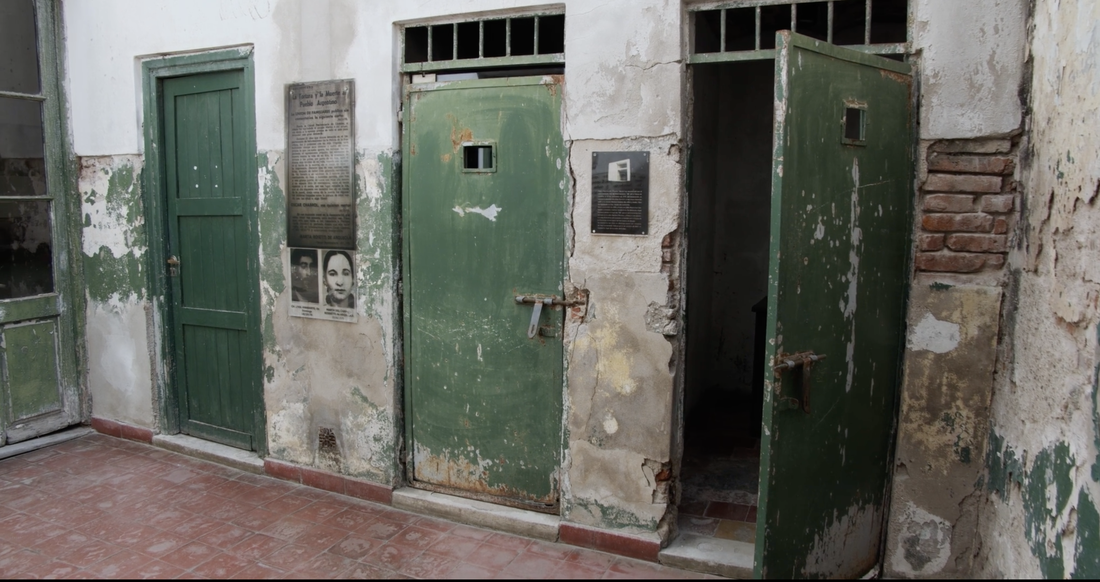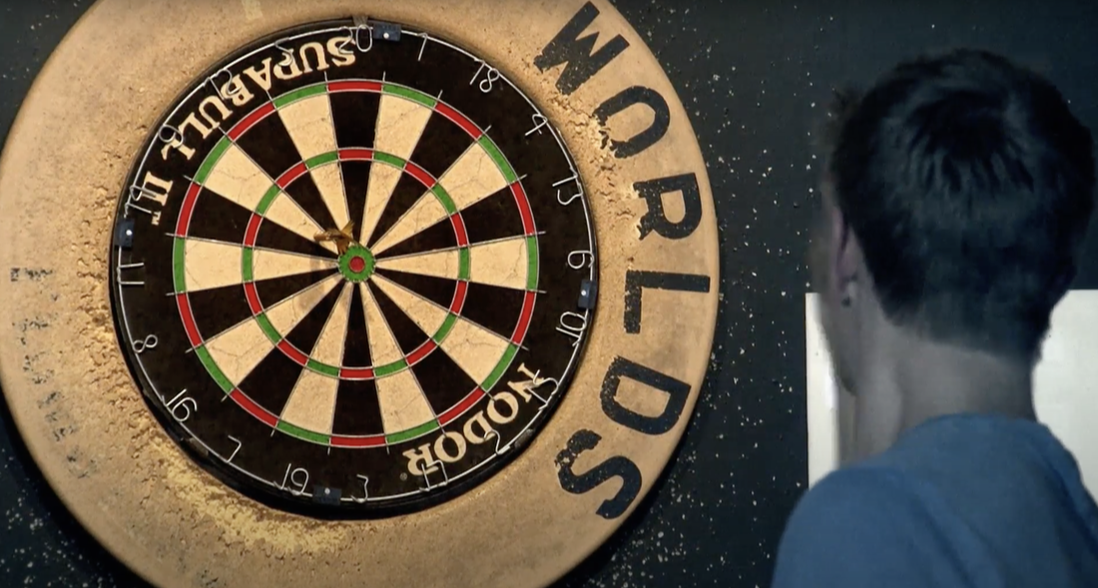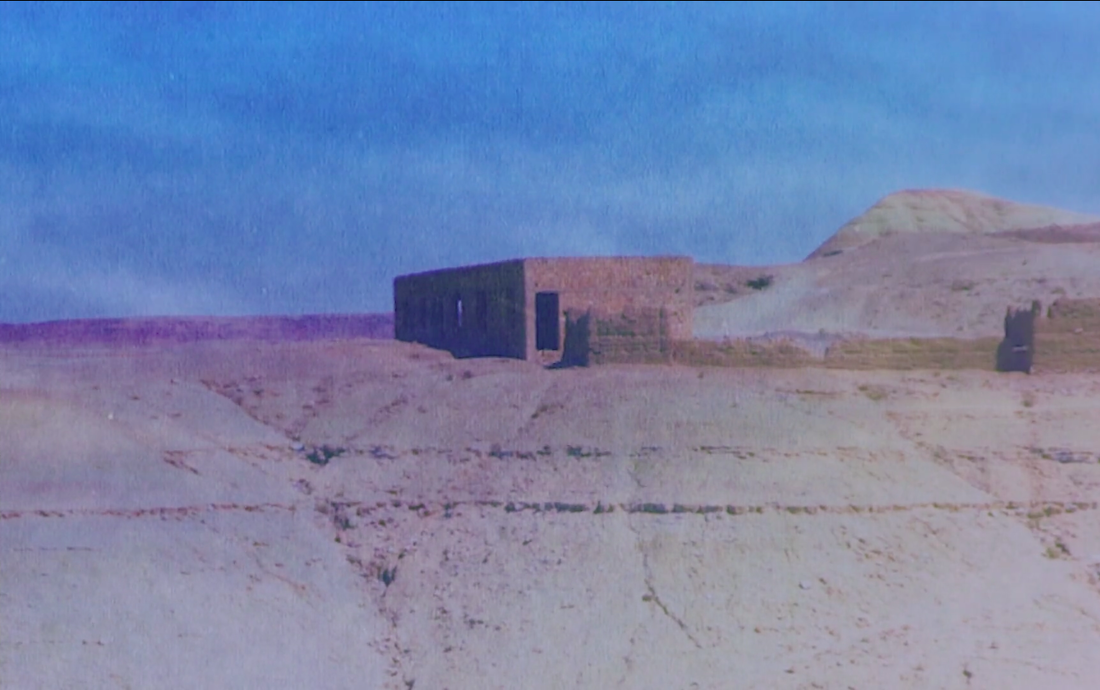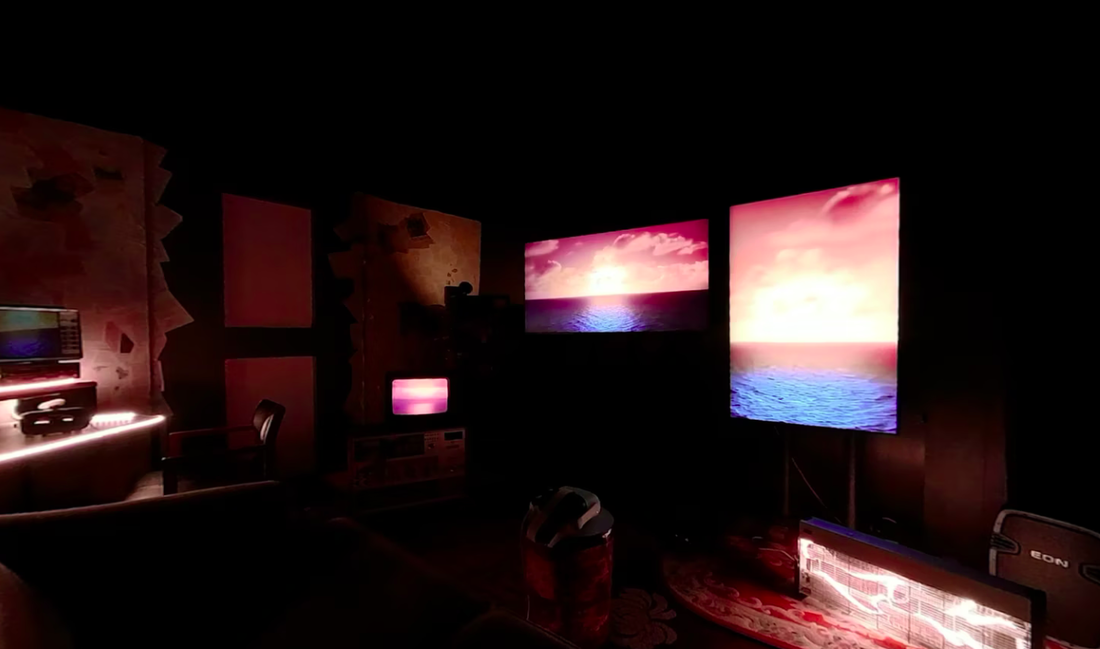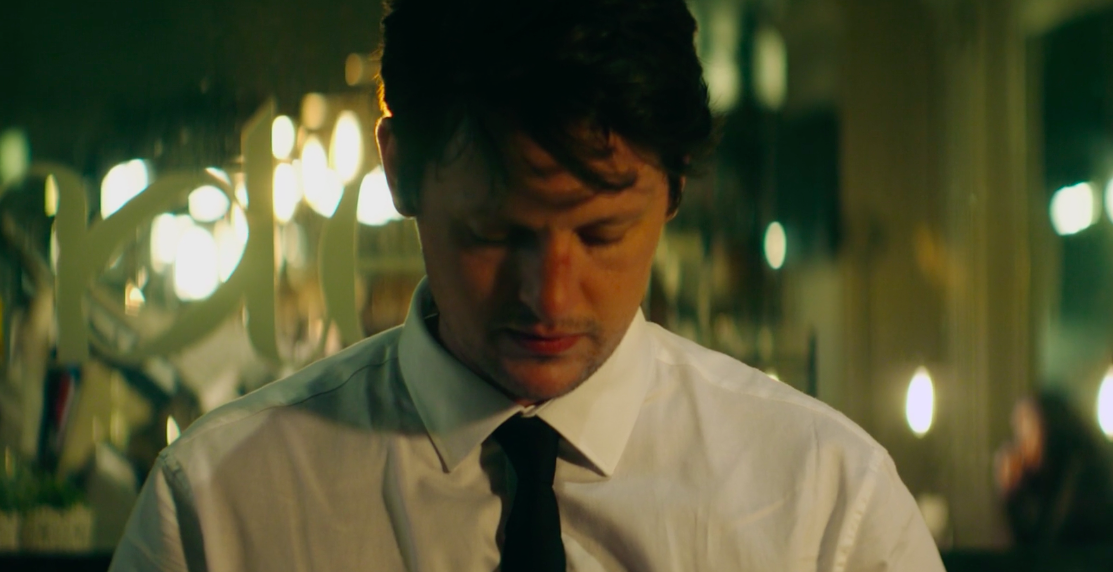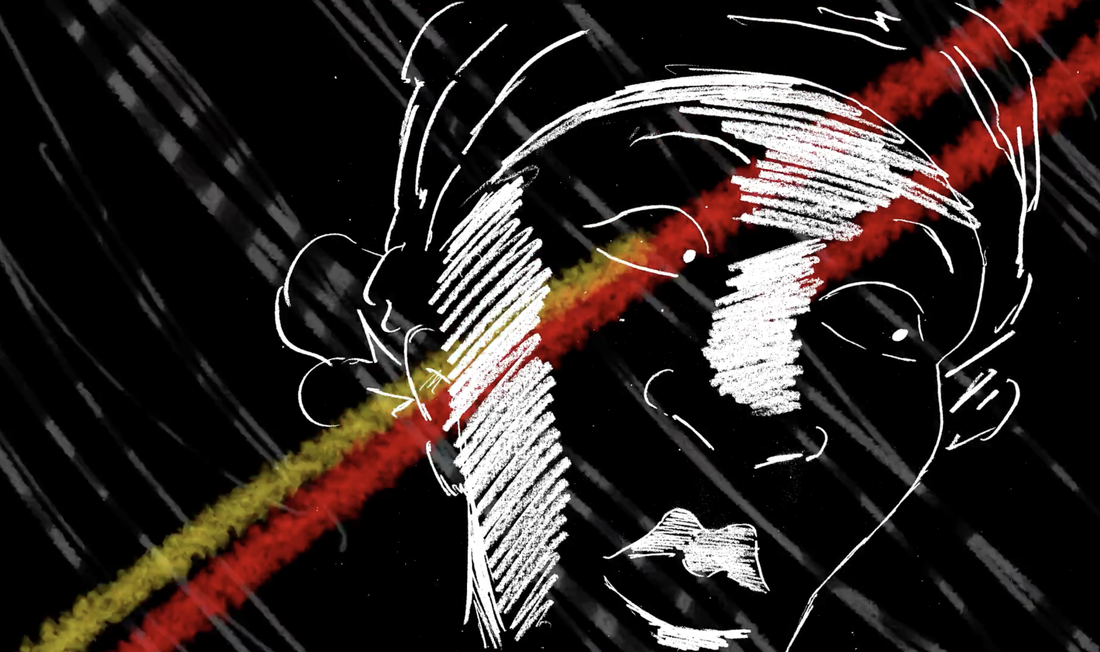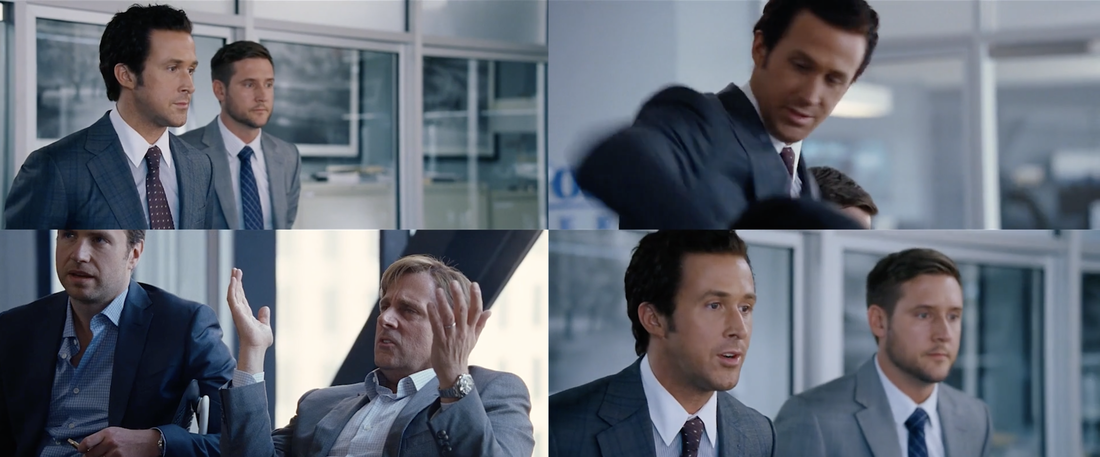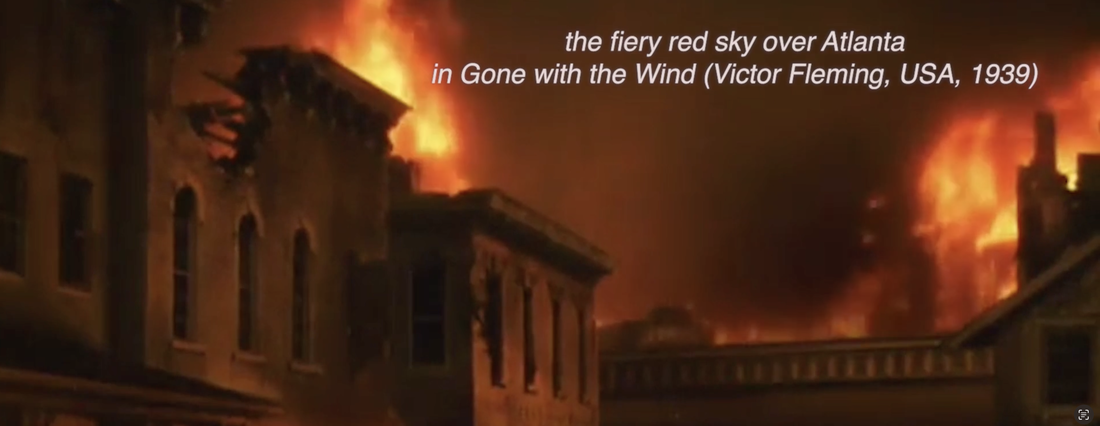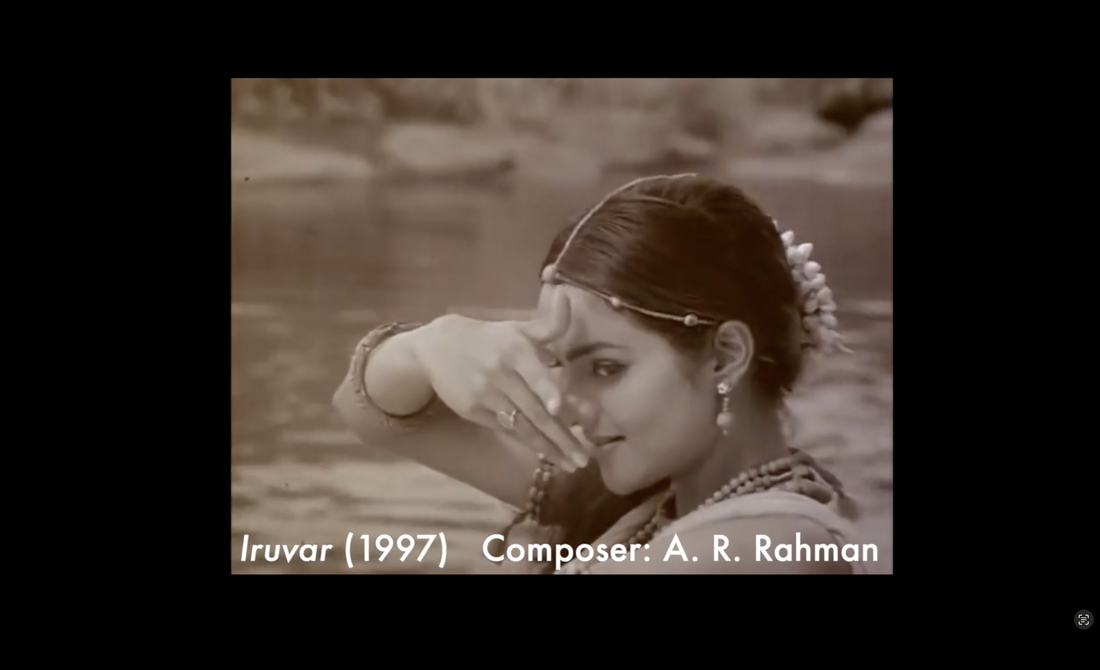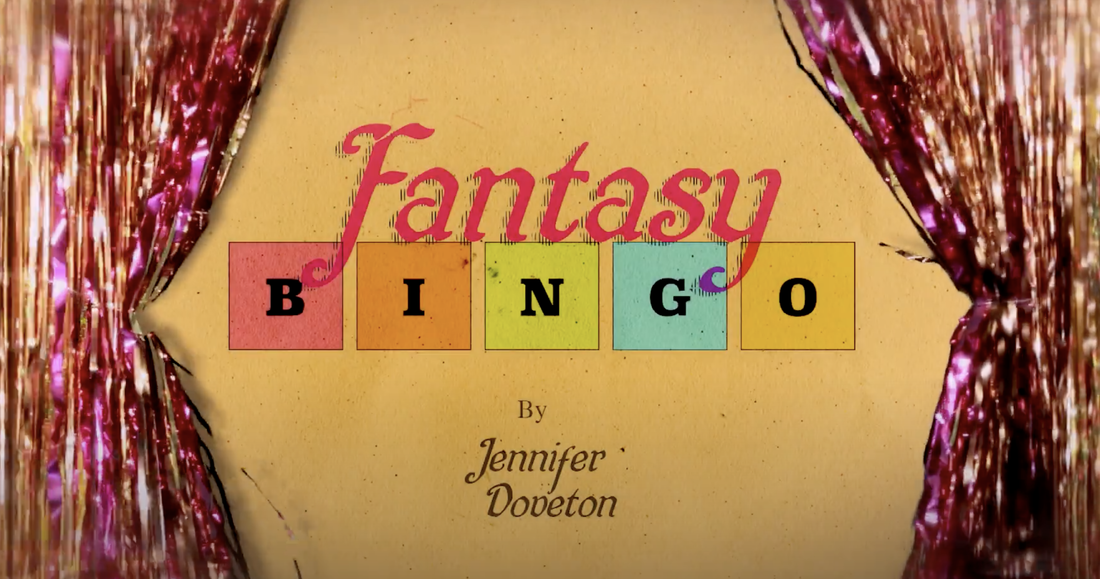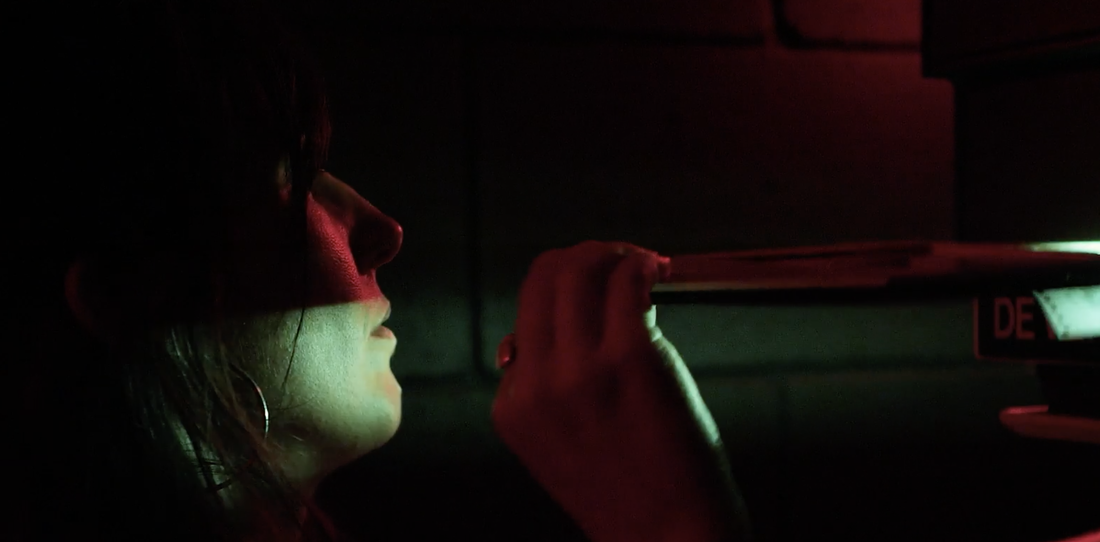View our Practice Research Award recipients below. Congratulations to our winners, and to those shortlisted!
Category of Screen Based Practice Research (feature)
Winner
(Dis)Appear
Piotr Cieplak (University of Sussex)
Piotr Cieplak (University of Sussex)
(Dis)Appear follows Gabriel and Ana as they return to their hometown and explore what role photography can play when faced with personal and collective traumas of the past. It is a documentary about the powerful relationship between photography, memory and the forced disappearances and systematic murderer perpetrated by Argentina's most recent civic-military dictatorship (1976-1983).
What the judges had to say
""This exploration of the critical relationship between photography, memory, and collective trauma produced a haunting study of the mnemonic power of the image to let us not forget.”
""This exploration of the critical relationship between photography, memory, and collective trauma produced a haunting study of the mnemonic power of the image to let us not forget.”
Runner-up
Bullseye: A Film in Four Movements
Matthew Hawkins (London Southbank University)
Matthew Hawkins (London Southbank University)
Bullseye: A Film in Four Movements is a fiction film drawing upon affect theory and film-philosophy to develop a method of film practice termed a cinema of affective tonality.
What the judges had to say
""The combination of the four ‘movements’ produced a thought provoking, creative and at times unsettling application of experimental practice research."
""The combination of the four ‘movements’ produced a thought provoking, creative and at times unsettling application of experimental practice research."
Honourable mention
APU: The Weeping Gods
Anna Sowa (Chouette Films/SOAS)
Anna Sowa (Chouette Films/SOAS)
An interactive documentary that uncovers the immediate disaster of shrinking glaciers and investigates the devastating consequences on water quality for the surrounding villages and wildlife.
What the judges had to say
"The use of VR producing a unique insight into the spectacular glacial mountains under threat from climate change.”
"The use of VR producing a unique insight into the spectacular glacial mountains under threat from climate change.”
Category of Screen Based Practice Research (short)
Winner
Her Plot of Blue Sky
Kamila Kuc (London College of Communication)
Kamila Kuc (London College of Communication)
A group of Amazigh women living in a care home in Morocco create their own visual diaries of their everyday life. These images - of themselves and others - are playful yet harrowing, and point to the invisibility of women, disabled, neuro-diverse, and elderly people in media more generally.
What the judges had to say:
"Her Plot of Blue Sky, for its intriguing and multi-layered exploration of documentary representation practices and decolonizing archival practices in the context of trauma. The judges were particularly impressed by the director’s collaborative practices and ethical approach to working in different cultural contexts. Personal memory-making processes and ethics are brought to the forefront of this captivating and accomplished piece of work."
"Her Plot of Blue Sky, for its intriguing and multi-layered exploration of documentary representation practices and decolonizing archival practices in the context of trauma. The judges were particularly impressed by the director’s collaborative practices and ethical approach to working in different cultural contexts. Personal memory-making processes and ethics are brought to the forefront of this captivating and accomplished piece of work."
Runner-up I
Pouring Water on Troubled Oil
Nariman Massoumi (University of Bristol)
Nariman Massoumi (University of Bristol)
Pouring Water on Troubled Oil follows the Welsh poet Dylan Thomas's journey through Iran in 1951 on an assignment to write a propaganda film script for the Anglo-Iranian Oil Company (the forerunner to BP). Combining original archive photographs with the poet’s own lyrical reflections in voiceover (performed by Michael Sheen), the film explores the poet's haunting vision of oil and modernity in midcentury Iran against the backdrop of political upheaval.
What the judges had to say:
"For creative research approach in addressing complex topics relating to economic colonialism in the former British Empire. This multi-layered film addressed oil industry history, ‘shadow cinema’, the figure of Welsh poet Dylan Thomas and the idea of unmade films in a fascinating way that mixes all elements into a compelling short film."
"For creative research approach in addressing complex topics relating to economic colonialism in the former British Empire. This multi-layered film addressed oil industry history, ‘shadow cinema’, the figure of Welsh poet Dylan Thomas and the idea of unmade films in a fascinating way that mixes all elements into a compelling short film."
Runner-up II
Nested Cinema
Pavel Prokopic (University of Salford)
Pavel Prokopic (University of Salford)
Nested Cinema is a new immersive experience that complicates the boundaries between the physical and the virtual, between the real and the imaginary. Nested Cinema reimagines film through orchestrating smart technology and devices across three distinct layers of experience‚ traditional screens, the installation space, and virtual reality‚ extending cinematic atmospheres across the three nested layers, giving rise to a new immersive mode of dramatic fiction.
What the judges had to say:
"A bold exploration of future technologies in moving image creative research. Nested cinema offers a thought-provoking exploration of narrative through the integration of Cinematic VR, the Internet of Things, but also physical spaces and traditional screens."
"A bold exploration of future technologies in moving image creative research. Nested cinema offers a thought-provoking exploration of narrative through the integration of Cinematic VR, the Internet of Things, but also physical spaces and traditional screens."
Honourable mention I
About The Night: Collaborative Material Thinking
Lee-Jane Bennion-Nixon (University of Portsmouth)
Lee-Jane Bennion-Nixon (University of Portsmouth)
About the Night is a short fiction film aiming to convey life's complexity and foster empathy. Despite the goal of minimal manipulation, it explores the challenge of reconstructing a moment authentically.
What the judges had to say:
"An intriguing approach to research in short fiction where skilful craft serves more than just storytelling. Each element is carefully chosen to evoke empathy without the easy ways fiction films can manipulate audiences’ emotions."
"An intriguing approach to research in short fiction where skilful craft serves more than just storytelling. Each element is carefully chosen to evoke empathy without the easy ways fiction films can manipulate audiences’ emotions."
Honourable mention II
Art and Gender in South Sudan
Louis Netter (University of Portsmouth)
Louis Netter (University of Portsmouth)
This animation takes findings from Professor Tamsin Bradley's contribution to the AHRSS (Arts, Heritage and Resilience in South Sudan) project and aims to highlight the complex positive and negative aspects of artistic practices in South Sudan.
What the judges had to say:
"A compelling feminist de-colonising narrative through a deployment of visually compelling metaphors. In particular, we were impressed with the different animation styles created by the filmmaker with the animation functioning as a conceptual and emotive ‘second’ text."
"A compelling feminist de-colonising narrative through a deployment of visually compelling metaphors. In particular, we were impressed with the different animation styles created by the filmmaker with the animation functioning as a conceptual and emotive ‘second’ text."
Category of Videographic Criticism
Winner
Men Shouting: A History in 7 Episodes
Alan O'Leary (Aarhus University)
Alan O'Leary (Aarhus University)
Men Shouting uses a range of parametric procedures to analyse three films on the 2008 financial crisis. My purpose is to surface the texture of the films' rendition of historical circumstances, something that might elude more conventional means of interpretation.
What the judges had to say
"An incredibly well-crafted and presented video essay that successfully employs parametric techniques to explore three American films that all engage with depicting the 2008 financial crisis. O’Leary's research utilizes computational methods to highlight the recurring patterns within media genres. By employing collaborative programming techniques to extract and repurpose semantic and syntactic elements from films, the study underscores the repetitive nature of genres. Specifically, 'Men Shouting' emphasis the reflection of contemporary cultural anxieties embedded in the construction of these cycles. Through various elements such as performance choices, costuming, hair styles, and settings, the generic tendencies become evident. This work not only introduces innovative ways to examine genre forms but also underscores the significance of parametric approaches in media studies. Its outstandingly creative approach aims to make political and epistemic impact on the audience, and it insightfully opens the thinking form of a video essay."
"An incredibly well-crafted and presented video essay that successfully employs parametric techniques to explore three American films that all engage with depicting the 2008 financial crisis. O’Leary's research utilizes computational methods to highlight the recurring patterns within media genres. By employing collaborative programming techniques to extract and repurpose semantic and syntactic elements from films, the study underscores the repetitive nature of genres. Specifically, 'Men Shouting' emphasis the reflection of contemporary cultural anxieties embedded in the construction of these cycles. Through various elements such as performance choices, costuming, hair styles, and settings, the generic tendencies become evident. This work not only introduces innovative ways to examine genre forms but also underscores the significance of parametric approaches in media studies. Its outstandingly creative approach aims to make political and epistemic impact on the audience, and it insightfully opens the thinking form of a video essay."
Runner-up
'Isn’t that going to be awfully dull and drab?' George Hoyningen-Huene’s use of neutrals
Lucy Fife Donaldson (University of St Andrews)
Lucy Fife Donaldson (University of St Andrews)
This audiovisual essay aims to highlight and explore colour consultant George Hoyningen-Huene’s foregrounding of neutral shades in his colour designs. It uses a combination of textual and archival analysis to play with the mutability, specificity and range in neutral shades.
What the judges had to say:
"A meticulously researched and innovative analysis of George Hoyningen-Huene's pioneering use of neutral shades in colour design. Fife Donaldson's essay illustrates that color consultants in the Eastmancolor era, such as George Hoyningen-Huene, departed from the guidelines set by Kalmus and Technicolor and as a result, these newfound creative liberties, influenced partly by the characteristics of the emerging film emulsions and a departure from the Technicolor spectacle led Hoyningen-Huene to introduce a monochromatic color palette that aimed for a more desaturated and naturalistic aesthetic. Through a captivating blend of textual interpretation and archival investigation, this essay was applauded by all the judged for its insightful contribution to the understanding of visual motifs and the tone of colour."
"A meticulously researched and innovative analysis of George Hoyningen-Huene's pioneering use of neutral shades in colour design. Fife Donaldson's essay illustrates that color consultants in the Eastmancolor era, such as George Hoyningen-Huene, departed from the guidelines set by Kalmus and Technicolor and as a result, these newfound creative liberties, influenced partly by the characteristics of the emerging film emulsions and a departure from the Technicolor spectacle led Hoyningen-Huene to introduce a monochromatic color palette that aimed for a more desaturated and naturalistic aesthetic. Through a captivating blend of textual interpretation and archival investigation, this essay was applauded by all the judged for its insightful contribution to the understanding of visual motifs and the tone of colour."
Honourable mention I
Insincere Inclusion? Ignorant Appropriation? A Symphony Orchestra Plays South Indian Film Music
Sureshkumar P. Sekar (Royal College of Music, London)
Sureshkumar P. Sekar (Royal College of Music, London)
This audiovisual essay presents an interdisciplinary inquiry -- film music studies, intermedial and multimodal studies, audience reception studies -- into, and an auto-ethnographic account of, an Indian listening to an Indian film score being performed without any Indian melodic instruments.
What the judges had to say:
"It is important to acknowledge the work of early career researchers and the panel would like to include Sureshkumar Pasupula Sekar’s for an honourable mention. Insincere Inclusion expertly delves into the fidelity of symphony orchestral music in select UK’s Indian film screening and offers an autoethnographic inspired account of the loss in transmediation that can be seen in attempts to support and develop inclusive strategies in film and music screenings. The essay clearly articulates with a range of close textual examples, how it was not just the meaning of the spoken word that got lost in translation; some of the significance of the score was also compromised. Melodic segments originally performed with traditional Indian instruments in the film's recorded score were recreated on stage using non-Indian instruments and as Insincere Inclusion argues, this alteration resulted in the film/music losing some of its cultural specificity, consequently diminishing its syncretic impact."
"It is important to acknowledge the work of early career researchers and the panel would like to include Sureshkumar Pasupula Sekar’s for an honourable mention. Insincere Inclusion expertly delves into the fidelity of symphony orchestral music in select UK’s Indian film screening and offers an autoethnographic inspired account of the loss in transmediation that can be seen in attempts to support and develop inclusive strategies in film and music screenings. The essay clearly articulates with a range of close textual examples, how it was not just the meaning of the spoken word that got lost in translation; some of the significance of the score was also compromised. Melodic segments originally performed with traditional Indian instruments in the film's recorded score were recreated on stage using non-Indian instruments and as Insincere Inclusion argues, this alteration resulted in the film/music losing some of its cultural specificity, consequently diminishing its syncretic impact."
Honourable mention II
The Responsive Eye, or, The Morning Show May Destroy You
Catherine Fowler (University of Otago)
Catherine Fowler (University of Otago)
Writers Michaela Cole, Jodie Kantor and Megan Twohey join forces with painter Bridget Riley in order to reveal harrassment and abuse as visual events.
What the judges had to say:
"A refreshing and innovative approach to a video essay. The work re-asks the questions posed by the #MeToo movement in a bold and thought-provoking way. The video essay addresses the question of the representation of sexual violence in art and offers unexpected visual and intellectual solutions."
"A refreshing and innovative approach to a video essay. The work re-asks the questions posed by the #MeToo movement in a bold and thought-provoking way. The video essay addresses the question of the representation of sexual violence in art and offers unexpected visual and intellectual solutions."
Doctoral category
Winner
Notes on Listening
Francisco Mazza (Staffordshire University)
Francisco Mazza (Staffordshire University)
Notes on Listening embraces a 'sensory documentary' approach, shunning traditional dialogues and commentaries in favour of a sensory experience.
What the judges had to say:
"The panel agreed that 'Notes on Listening' is a highly original sound-driven narrative documentary that successfully puts the audience inside the area it explores, Peckham in London. The film skilfully represents the complex and unique soundscape of this London borough, giving a visual and sonic sense of its vivacity and vibrancy. In doing do, it makes a clear case for resisting the impending threats posed by encroaching gentrification. The panel commended the filmmaker's creative and intricate approach, which provides a vivid evocation of Peckham's rich cultural life."
"The panel agreed that 'Notes on Listening' is a highly original sound-driven narrative documentary that successfully puts the audience inside the area it explores, Peckham in London. The film skilfully represents the complex and unique soundscape of this London borough, giving a visual and sonic sense of its vivacity and vibrancy. In doing do, it makes a clear case for resisting the impending threats posed by encroaching gentrification. The panel commended the filmmaker's creative and intricate approach, which provides a vivid evocation of Peckham's rich cultural life."
Runner-up
Fantasy Bingo: Motifs on Genre and Class in British Fantasy Texts
Jennifer Doveton (Brunel University, London)
Jennifer Doveton (Brunel University, London)
A video essay which playfully uncovers the insidious class coding and rhetorics of aspiration at the heart of popular British fantasy film and television.
What the judges had to say
"The panel agreed that this highly original and rigorous practice research presents a fascinating exploration of class in British fantasy films and television. It uses the innovative format of 'fantasy bingo' to introduce key theoretical concepts in this academic field of study. In doing so, it effectively uses the video essay form to thoroughly explore a range of ideas related to class in an engaging and creative way. The panel also commended this entry on the very high level of rigour demonstrated in both the video essay and the supporting research statement."
"The panel agreed that this highly original and rigorous practice research presents a fascinating exploration of class in British fantasy films and television. It uses the innovative format of 'fantasy bingo' to introduce key theoretical concepts in this academic field of study. In doing so, it effectively uses the video essay form to thoroughly explore a range of ideas related to class in an engaging and creative way. The panel also commended this entry on the very high level of rigour demonstrated in both the video essay and the supporting research statement."
Honourable mention
Processing Images from Caracas
Lorena Cervera Ferrer (University College London / Arts University Bournemouth)
Lorena Cervera Ferrer (University College London / Arts University Bournemouth)
Processing Images from Caracas traces the small and little-known archive of photographer and filmmaker Franca Donda. This short documentary explores the fragility of the archive, its absences, and spectres.
What the judges had to say:
"The panel agreed that this film offers a fascinating exploration of the work of photographer, filmmaker and activist Franca Donda. They agreed it brings much-needed attention to her work in Venezuela and Cuba, which has been seriously overlooked. It creatively uses the documentary form to represent the filmmaker's process of finding, exploring and engaging with archives that preserve Donda's work, which, unfortunately are perilously close to being lost. The film therefore provides an innovative method of highlighting and preserving the vital and varied work of this essential artist."
"The panel agreed that this film offers a fascinating exploration of the work of photographer, filmmaker and activist Franca Donda. They agreed it brings much-needed attention to her work in Venezuela and Cuba, which has been seriously overlooked. It creatively uses the documentary form to represent the filmmaker's process of finding, exploring and engaging with archives that preserve Donda's work, which, unfortunately are perilously close to being lost. The film therefore provides an innovative method of highlighting and preserving the vital and varied work of this essential artist."


